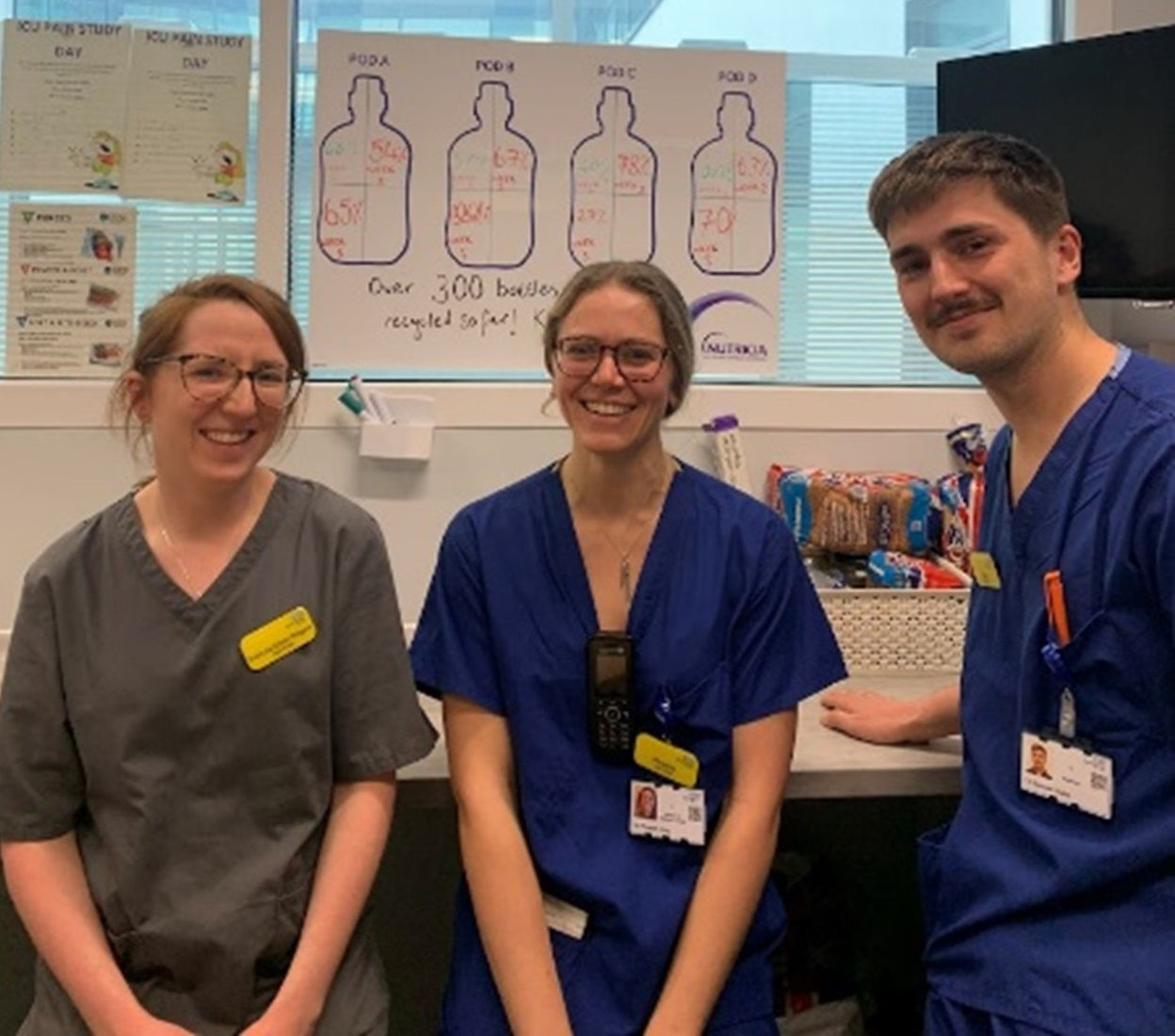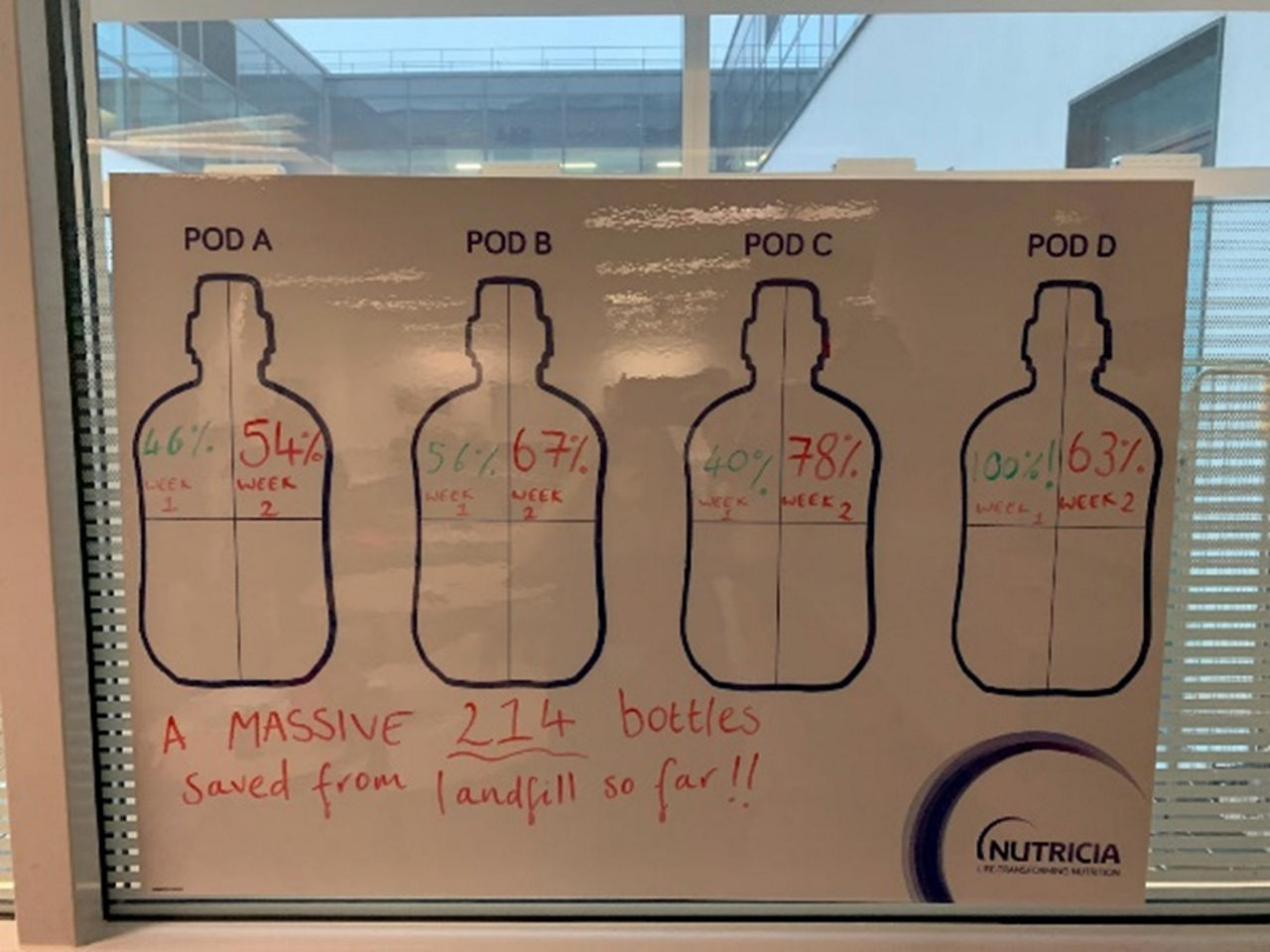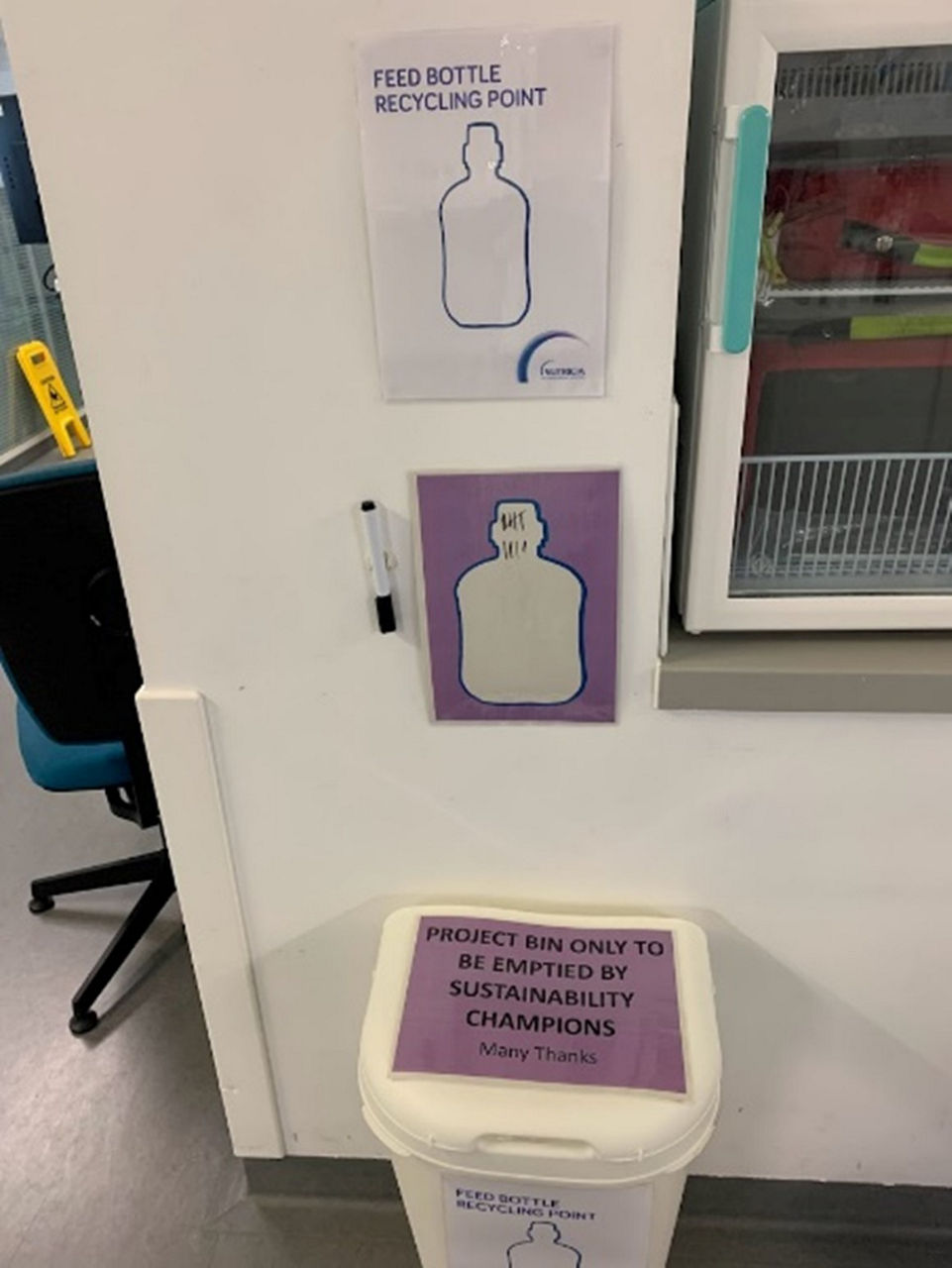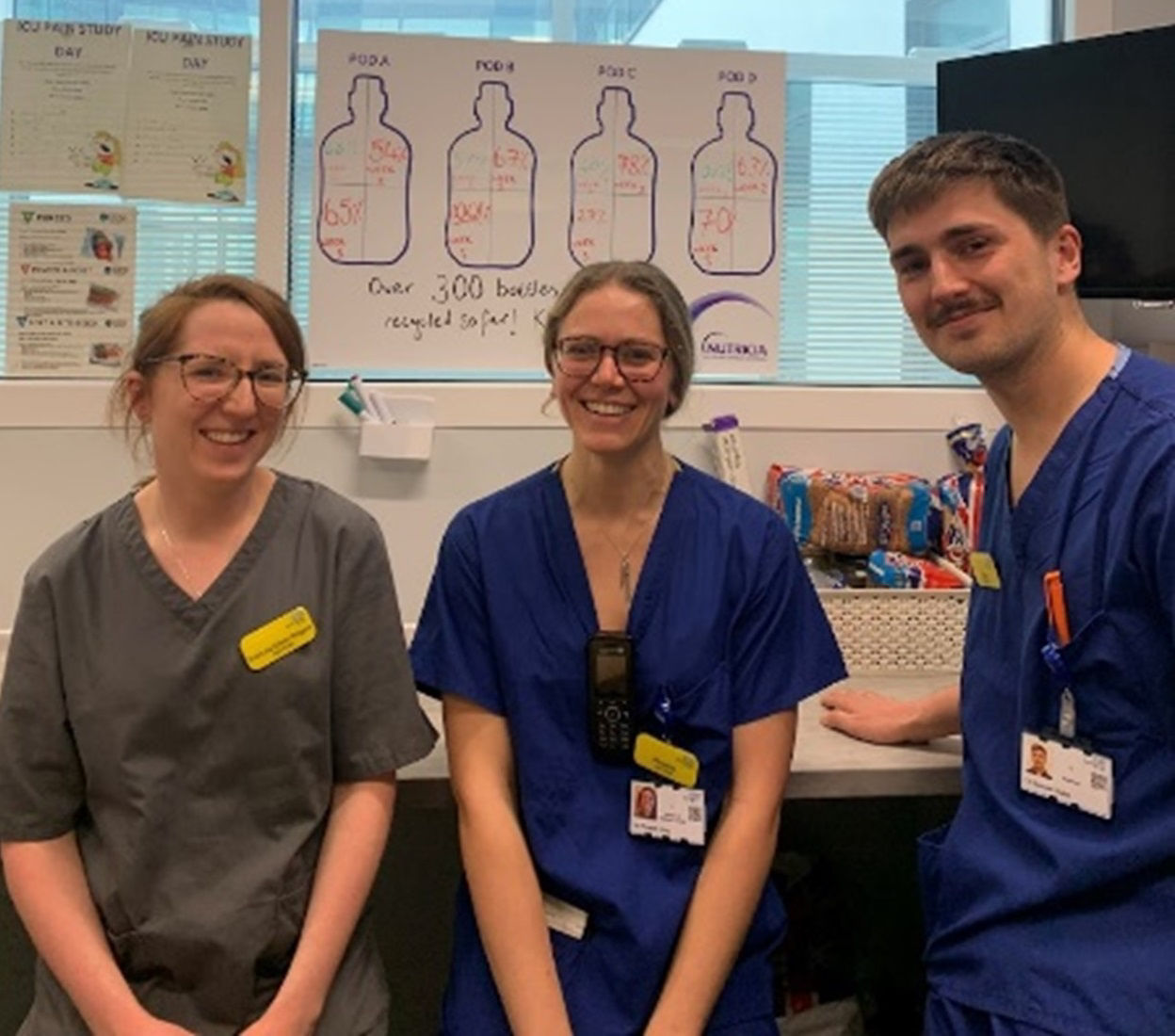North Bristol Trust recycling project
During March 2023, Junior Doctor Phoebe Gray at North Bristol NHS Trust’s Intensive Care Unit led a recycling challenge after it became clear that not enough was being done to reduce waste in the unit.
When Junior Doctor Phoebe Gray joined the North Bristol NHS Trust Intensive Care Unit (ICU), she saw that recycling could be improved and worked with fellow Junior Doctor Samuel Gubb, to approach others within the team to understand what could be done to improve recycling and reduce carbon emissions from waste.
The ICU at North Bristol Trust is one of the biggest in the Southwest of England, a 48-bed unit and neurosurgical centre with many patients with unsafe swallows or who are critically unwell and require enteral tube feeding. Most of the enteral tube feeds used in the ICU were in ready to feed OpTri bottles which are recyclable.
During COVID-19 practice changed, meaning many recyclable items had to be put straight into infectious waste; however that practice continued even after COVID infection rates dropped. Already passionate about sustainability and having prior knowledge that healthcare is responsible for 5% of global carbon emissions1, Phoebe worked with a team of dietitians to determine why recycling practice for OpTri bottles on her unit hadn’t changed back to pre-COVID levels.
To start, Phoebe conducted a departmental waste audit. For a 72-hour period, Phoebe weighed all the waste from the ICU so she could have a baseline figure determining the type and weight of waste leaving the unit. The results demonstrated that over a year, the ICU produced 117 tonnes of waste, with less than 4% recycled. That 117 tonnes equate to 50,000kg in carbon equivalent emissions2. It is now estimated that the North Bristol Trust ICU uses over 9,000 Nutricia OpTri feed bottles a year - over 330kg of recyclable plastic. If these aren’t recycled it would equate to 83kg CO2e from processing these bottles yearly, which was a huge driving factor for Phoebe in starting this recycling challenge.
Next step was a survey to determine healthcare professionals recycling habits and interest in a recycling challenge. Often doctors and dietitians prescribe enteral tube feeds but don’t directly use them at the bedside, so it was important to determine how feasible a recycling challenge would be for the nursing team and bedside staff. This survey also asked for ‘sustainability champions’ to support Phoebe in the organisation of the challenge and identified any potential barriers that could be a limitation in conducting a challenge.
From the survey, 88% of staff working in the unit were keen to recycle but 60% of them were unaware of what could be recycled. After discovering this, Phoebe approached Nutricia to discuss the project where she discovered the Newcastle recycling project and decided that her trust could do something similar.
The OpTri bottle challenge
The ICU in Southmead Hospital is split into four distinct “pods”, each similar to a large hospital bay, with dedicated nursing teams for each pod. There are 48 beds on the unit that are divided into 4 pods of 12 beds, with dedicated nursing teams for each pod. This worked particularly well for the recycling challenge as there is already healthy competition amongst pods having taken part in previous challenges such as a Christmas decorating competition.
In order to quantify the number of OpTri bottles being recycled, separate bins and tally charts were provided in each pod. The nursing team were asked to rinse the bottles and put them into the recycling bin in their pod. At the end of each day, the ‘sustainability champions’ would count the number of bottles, empty the bin and mark it on a tally chart. The dietitians had a record of the number of bottles that were prescribed versus how many were placed into the recycling bins so an overall recycling percentage could be determined.
As an extra incentive, Nutricia donated a prize for the team with the greatest recycling percentage.
Final figures show that during this period, the team were able to recycle a total of 446 bottles (15.1kg of plastic). This represents a carbon saving of 3.46kgCO2e.
Upon finishing the challenge, Phoebe and Sam, are planning to re-survey the department to see how the team found the challenge and understand any difficulties. Posters have been placed around the unit to maintain the momentum of the challenge and Phoebe and Sam have big plans for continuing sustainability efforts in the ICU and beyond.
The appetite for sustainability was a huge driver in the success of this project, it is hoped that the month-long challenge has raised sufficient awareness and created a habit to recycle which will be ongoing.
References:
- Josh Karliner, Scott Slotterback Arup, Richard Boyd, Ben Ashby, and Kristian Steele, Healthcare Climate Footprint, Healthcare without Harm, Paper One, 2019, https://noharm-global.org/sites/default/files/documents files/5961/HealthCaresClimateFootprint_092319.pdf
- Chantelle Rizan, Mahmood F. Bhutta, Malcom Reed, Rob Lillywhite, The carbon footprint of waste streams in a UK hospital, Journal of Cleaner Production, Volume 286, 2021, 125446, ISSN 0959-6526, https://doi.org/10.1016/j.jclepro.2020.125446. (https://www.sciencedirect.com/science/article/pii/S0959652620354925).




